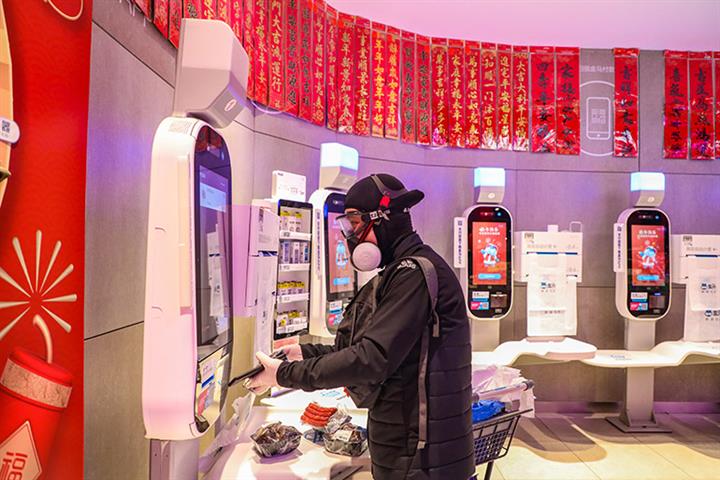 Vouchers Do Not Boost Consumerism, Lunar New Year Does Spur Spending, Expert Says
Vouchers Do Not Boost Consumerism, Lunar New Year Does Spur Spending, Expert Says(Yicai Global) Jan. 25 -- Recent sporadic outbreaks of Covid-19 in China have prompted several local governments to offer consumer coupons once again. This is not very effective as vouchers do not enhance consumers’ sense of security or confidence, one pundit said in critique of the practice.
China’s one-week Lunar New Year -- or Spring Festival -- holiday, a traditional consumption peak season, also will not prop up consumer spending in the first quarter as in previous years, Gao Huan, senior director of New York-based management services firm Alvarez & Marsal Beijing branch’s performance improvement and restructuring department, told Yicai Global in a recent interview.
Consumption has lagged in recovery post-pandemic compared with investment and exports, and the coverage of consumer coupons is limited. Vouchers are not available to all merchants, with state-backed enterprises having a larger share, while private and foreign companies have a harder time getting their hands on them, the Alvarez & Marsal team’s statistics show.
"In fact, the most important factor affecting the market is not how much money consumers have in their pockets, but their confidence index. When consumers receive vouchers, will their sense of security and confidence be greatly improved? " Gao asked rhetorically. "I think not," she said in answer.
The main growth point in the first quarter of this year is Spring Festival, which usually provides strong support for the retail and catering sectors. Travel and catering consumption during this year’s one-week vacation will not be as vigorous as in 2019 because of the current pandemic, but should increase compared to last year, she added.
Consumption of luxury goods and cosmetics will continue to grow strongly, however, Gao predicts, since high-income earners are less affected by the epidemic and new retail channels for e-commerce are expanding.
Hit Hard
Since cross-border travel and purchasing agents have taken a gut punch from the coronavirus due to travel restrictions, huge luxury goods consumption originally vented overseas has flowed back, redounding to the benefit of China's domestic luxury brands.
In the context of economic downturn, employment opportunities and the income of low- and middle-income groups have been greatly impacted. High- and middle-income and high-net-worth groups with investment income have not been hit so hard, so they still buy luxury goods, Gao noted.
Cosmetics consumption grew strongly amid the coronavirus outbreak. It has not yet subsided and will hold strong into the future. The major driver is the fact that cosmetics impart a feel-good factor, and spending a relatively small amount can achieve the goal of self-pampering and improving quality of life. This is consistent with the lipstick effect, the theory that consumers facing an economic crisis are more willing to buy less costly luxury goods.
The rise of domestic cosmetics in China is also a factor in hot makeup sales. Quick and convenient channels such as live streaming and e-commerce make it easier for people to buy such products, Gao stated.
Retail sales of consumer goods fell by 3.9 percent last year in China under the impetus of unfavorable factors, including the pandemic, per data China’s National Bureau of Statistics released on Jan. 18.
Editor: Ben Armour, Xiao Yi